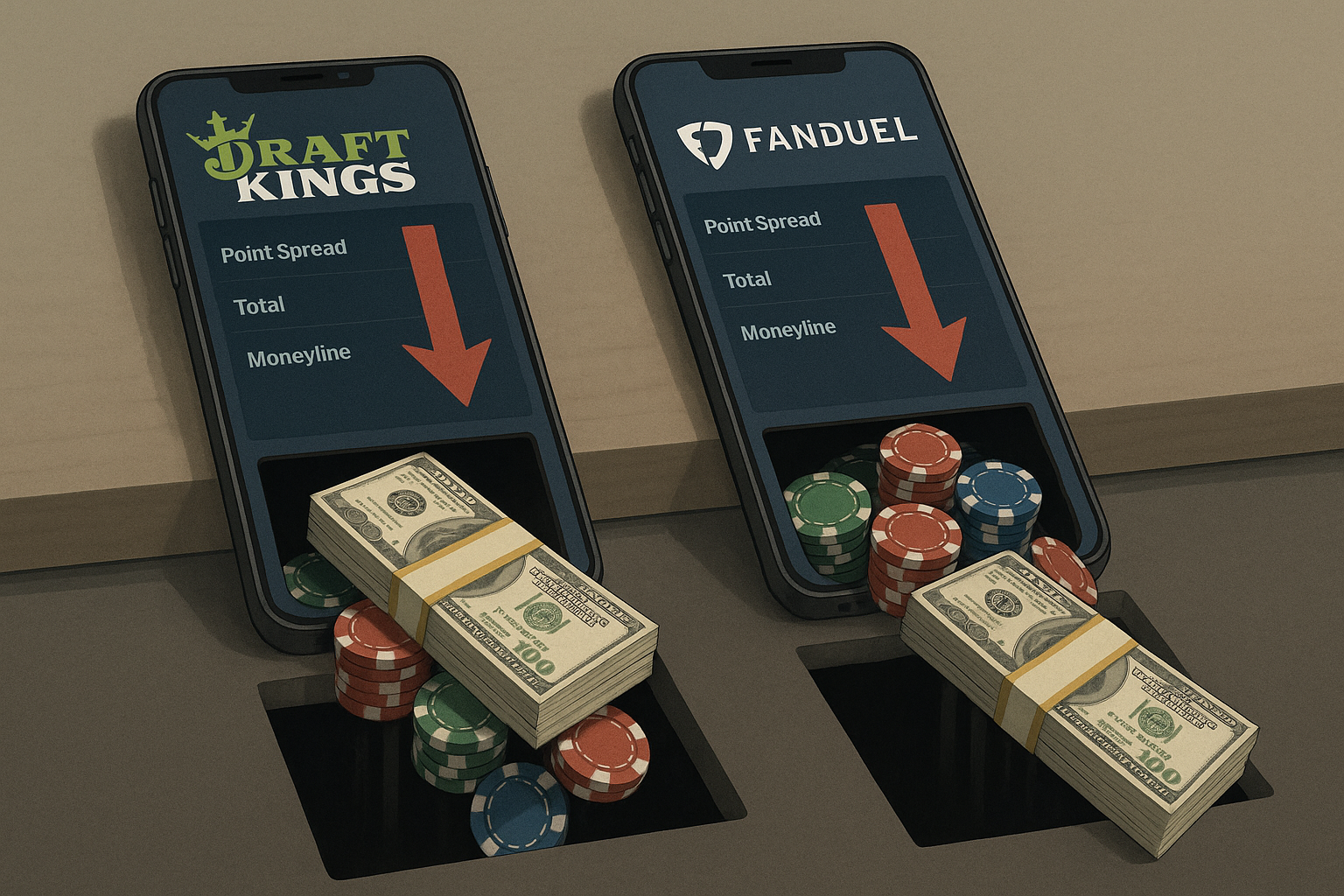The math just doesn't add up.
In the world of gambling, one truth has remained sacrosanct since ancient Romans tossed dice: the house always wins. Always. It's not luck or skill—it's pure mathematical certainty.
So how on earth are DraftKings and FanDuel—the behemoths of online sports betting—managing to lose money? And not just a little money. We're talking hemorrhaging cash in an industry specifically engineered to be profitable by design.
It's like watching a toll booth operator file for bankruptcy while cars keep streaming through paying $5 a pop.
I've been covering the gambling industry for years, and this situation has me genuinely perplexed. Vegas sportsbooks have been reliable profit centers for decades. The formula is dead simple: balance action on both sides of a bet, take your commission (the "vig" or "juice"), and pocket the difference. Risk management 101.
"It defies logic," a veteran Vegas bookmaker told me last week over coffee. "These companies have advantages we could only dream about twenty years ago—instant deposits, algorithmic line adjustments, zero physical overhead costs. And they're still losing?"
Let's break down this bewildering situation.
First, there's the promotional bloodbath. Both companies are trapped in what industry insiders call "the promo war"—offering increasingly absurd incentives just to get bettors in the door. "Bet $5, get $200 in bonus bets!" sounds great if you're a customer. Not so great if you're a shareholder.
I downloaded both apps last football season (research purposes only, I swear) and was bombarded with offers that made no mathematical sense from a business perspective. Free bets. Odds boosts. Risk-free parlays.
These aren't sustainable customer acquisition strategies—they're financial self-immolation.
Then there's the bloat. Good lord, the bloat.
FanDuel runs multiple TV channels. Both companies maintain enormous marketing operations, celebrity endorsement portfolios, and executive teams that would make a Wall Street bank blush. The traditional Vegas sportsbook doesn't need Kevin Hart commercials or partnerships with every professional sports league to turn a profit.
Look, there's also an expertise problem that nobody wants to acknowledge. These companies began as daily fantasy sports operators. They pivoted to traditional sports betting after the Supreme Court opened that door in 2018. The skill sets aren't identical. It's like watching a successful baker decide they should run a five-star restaurant—related field, entirely different operational challenges.
Having visited several traditional sportsbook operations during my reporting, the contrast is stark. Vegas books employ veteran oddsmakers who've spent decades honing their craft. They understand risk management at a cellular level. The tech-first approach of these online operators appears to have overlooked some of that institutional wisdom.
The market structure doesn't help either. While physical sportsbooks enjoy geographic monopolies (you can't price-shop easily when the next casino is a mile away), online bettors can—and do—maintain multiple accounts to find the best lines. This creates pricing pressure that traditional bookmakers never had to face.
"I have seven different sportsbook apps on my phone," one professional bettor explained to me. "If FanDuel is offering the Knicks at -5.5 but DraftKings has them at -4.5, where do you think I'm placing my bet?"
Those margins matter. A lot.
Will interest rates help? Maybe around the edges. Cheaper debt means... well, they can lose money more affordably? That's hardly a business model.
The whole situation drips with irony. These companies have somehow found a way to lose money in an industry mathematically designed to be profitable. It's like owning the only gas station at a busy intersection and somehow going bankrupt.
Perhaps there's a deeper lesson here about the limits of the growth-at-all-costs mentality that dominated business thinking during the zero-interest-rate era. Some businesses simply require patience and operational discipline rather than blitzscaling and promotional warfare.
For now, DraftKings and FanDuel find themselves in the bizarre position of being bookmakers who can't make the odds work in their favor. In the gambling world, that's what you call a very bad beat.
